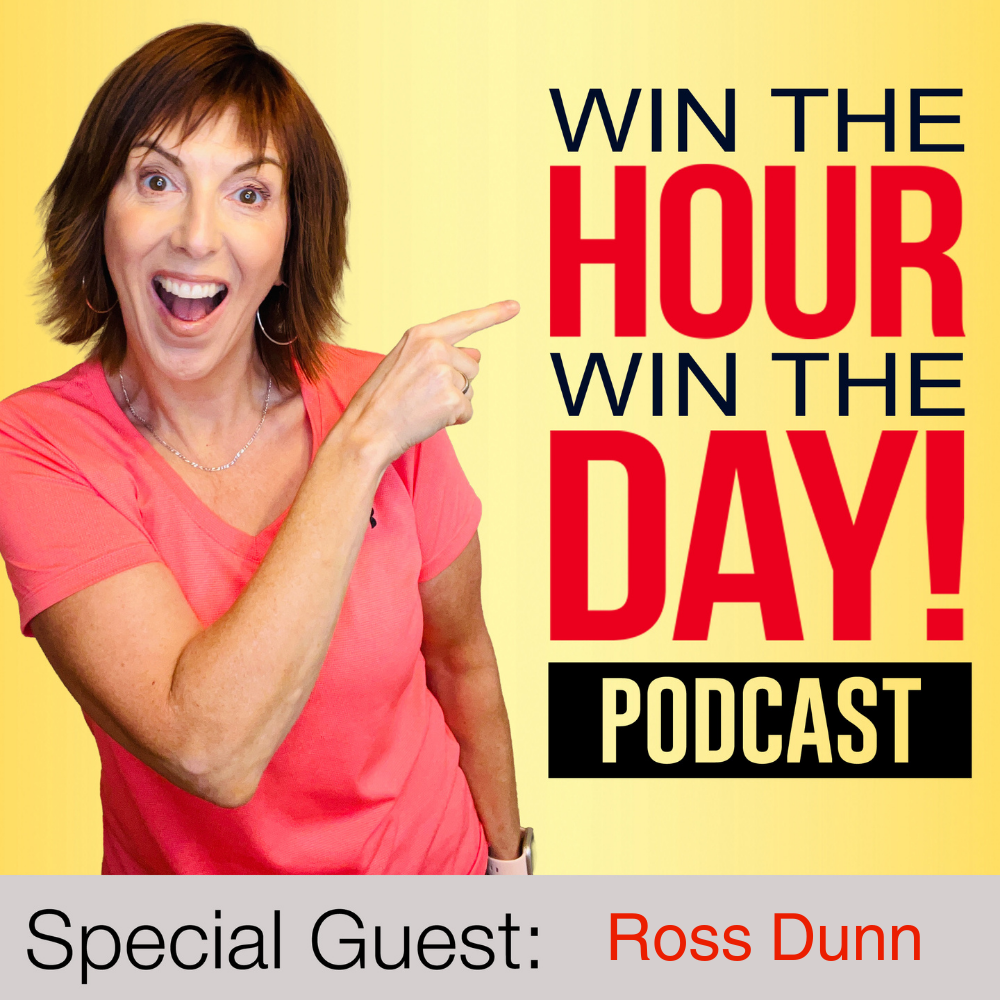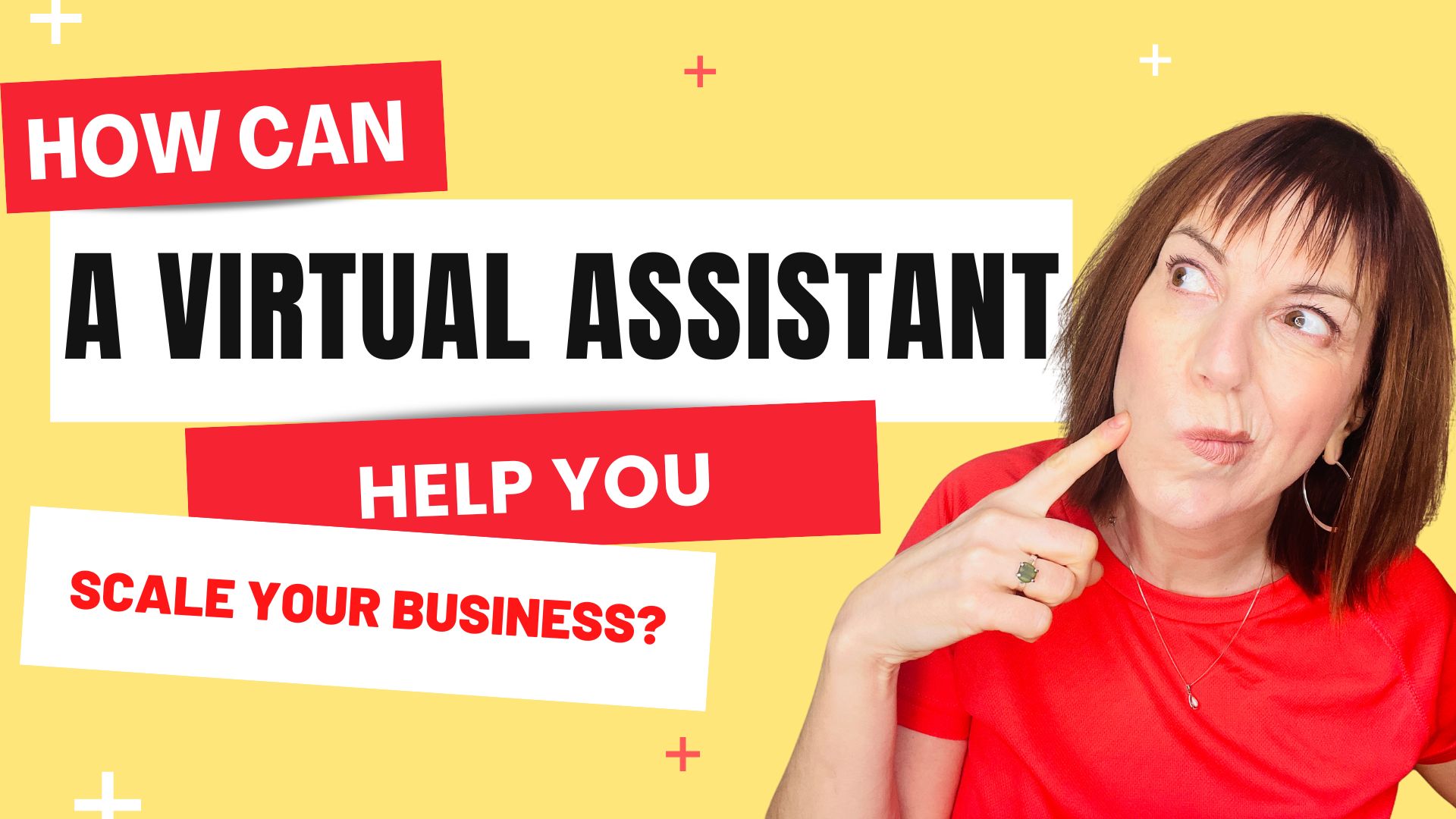Episode Summary
Robin Waite is the pricing guy! And he’ll change how you look at your business! It’s an interesting conversation with lots of big “aha’s.”
Learn:
-the biggest mistakes when looking at your competition
-how simple calculations can change everything (even if you are bad at math)
-the rule of thirds and how ignoring it is hurting your business
Join The Community: https://www.facebook.com/groups/WinTheHourWinTheDay/
Win The Hour, Win The Day! www.winthehourwintheday.com
Podcast: Win The Hour, Win The Day Podcast
Facebook: https://www.facebook.com/winthehourwintheday/
LinkedIn: https://www.linkedin.com/company/win-the-hour-win-the-day-podcast
You can find Robin Waite at:
Website: https://www.robinwaite.com/
Facebook: https://www.facebook.com/rob.waite
Email: robin@robinwaite.com
LinkedIn: linkedin.com/in/robinmwaite
Masterclass: Working Hard Sucks And It’s Costing You Money!
https://winthehourwintheday.com/working-hard-sucks-and-its-costing-you-money-masterclass
Win The Hour Win The Day
https://winthehourwintheday.com
Check out the Outsourcing Playbook For Busy Entrepreneurs here: https://winthehourwintheday.com/outsourcing-playbook
Robin Waite Podcast Transcription
START…
[00:08:49]Kris Ward: Hey, everyone. Welcome to another episode of Win The Hour, Win The Day. I am your host Kris Ward. And today we have Robin Waite in the house. This is going to be all kinds of interesting. Robin is the Pricing Guy. He helps entrepreneurs slow down and create space. Confidently charge your worth. Okay. That sounds interesting to me, Robin, where do we start and welcome to the show.
[00:09:15]Robin Waite: Oh, thank you very much for having me, Kris. I’m super excited to be here today and yeah. Where do we start? Well, I’ll leave that down to you. What questions do you have for me?
[00:09:22]Kris Ward: Okay. Well, We just always assume, like, I don’t even really, when you start your own business, you look at the ceiling, squint your eyes and say, oh, how much do I think I can get away with charging for this?
[00:09:35] Right. And you know, or sometimes it may be the worst mistake because you look at your competitors and what are you doing? Are you basing that on what, what are they doing? We don’t know what they’re doing well or their experience or their niche market or anything. So, where do you think we should be looking?
[00:09:51] When do we know we have a problem? When do we know where it could be charged differently? What is it we don’t know?
[00:09:57]Robin Waite: Well, you kind of, you’re on the money. If you’ll excuse the pun, like straight away. Cause the biggest mistake people make is they do look at the competition. And like the reality is if you’ve got like five of your competitors out there, charging like similar amounts.
[00:10:10] And so you decided, oh, well that’s what I’m going to charge. Cause it works for them. It might work for me. Economically, when you look at it and, you know, in terms of the finances, it probably doesn’t actually stack up for your business. So I actually go back like a step from that and suggest to people, well, actually, what you need to do is, look at your goals for your business.
[00:10:31] So let’s say for example, you wanted to run a hundred thousand dollars a year and your widget that you sell for a thousand dollars or the service, which you provide costs a thousand dollars. And you divide the two between each other. Well, do you have the capacity to work with a hundred clients? Could you support them?
[00:10:46] And so you’ll either get the hell. Yes, we can do that. Absolutely. Or we’ll get the, whoa, no, that’s a hundred clients. That’s just ridiculous. How do I get 100 clients? How do I service a hundred clients? So we know at that point that a thousand dollars is not going to work. And so what you then need to do, let’s say, for example, if your capacities only say 20 clients, well, you need to be
[00:11:06] creating a product that…where you can, the value is worth $5,000. Otherwise just economically, it’s not going to stack up for your business. So we go goal-focused first, we do a couple of very simple calculations and then we start to sort of unpack it from there. And yes, we might look at our competition, but we don’t,
[00:11:25] the mistake is assuming that they’re doing it correctly because invariably they’re not and the final thing as well is on looking at your competitors. You might have 20 people in your industry and your local area. Doing what you do or charging various amounts, but there’s only one of them that can be the most expensive.
[00:11:42] And my view is that typically when you look at the one who is the most expensive, they’ve normally got the most five star reviews on Google. They normally have tons of referrals from existing clients. They’re normally the first person that somebody mentioned locally, when somebody said, Hey, do you know a web designer?
[00:11:58] Oh, you should go and speak to these guys, but they’re expensive. Then they’re normally top of the pile and they’ve been around for the longest. They’ve got the best reputation. But the clue is that they’ve been around for a long time. They’ve got the reviews then the most expensive and yet they still get clients.
[00:12:15] So I’m kind of like, well provided you’ve got the skills and you can get the desired outcomes and results for your clients, why should you not be the most expensive?
[00:12:25]Kris Ward: Okay. So you’ve given me a lot to think about, so right off the bat, I would say, well, I can’t speak for all entrepreneurs. I’ll say I would assume I started at the wrong end and I would think most do though, because most think, what can I charge?
[00:12:40] What do I think I’m worth versus you’re saying it’s a math problem. What do you need to bring in? Which kind of makes sense because it’s sort of like, if you, when you first leave home or you, whatever you think, okay, I’m going to pay rent here. So how much do I have to make?
[00:12:56] How many hours or what kind of job do I have to get? How many hours am I going to have? How much am I going to get paid per hour at that job? How many hours do I put in to cover rent? So we work backwards. In the early stages of our life. And that’s what you’re seeing, we should be doing as an entrepreneur, like, okay, what’s your financial goal. And then you make sure that you create a package or a service or something that fulfills that financial need.
[00:13:21]Robin Waite: A hundred percent. Absolutely. I’d like to say it’s not simple, but this will be a really short podcast, Kris, if we can. But the reality is as well, like most service-based business owners. So if you’re thinking about web designers, freelancers, consultants, and people like that, they will actually start off charging time for money.
[00:13:39] Exactly. Like you’ve just said it’s the other way round, rather than it being a job where they kind of create a job for themselves. So they charge 50 bucks an hour or a hundred bucks an hour or something like that. Now what I’ve also noticed I mean, I’ve worked with hundreds of business owners and, looked at lots of different sorts of studies around sort of, the consult, the average consultant typically works only four to five days a month.
[00:14:03] And you think that charging an hourly rate or day rate, they’ve got to earn all of their income in just four to five days’ work. Now, most consultants, when they work out their hourly rate, they work out based on 20 days a month, which is 21 and a half days, or have much, it works out a month that they work for.
[00:14:19] So where did the other 15 days go? Like, what’s that all about? Well, the reality is like most business owners still need to go to networking, do marketing, do sales meetings, write reports, do their accounts, like all of the other business functions still need to happen and wrap around the actual paid work to fulfillment.
[00:14:37] So when you think about it, it’s not just about the time, which that consultant or freelancer is selling. There’s two other really major constituent parts, which go into making up how much they surcharge. So, it’s a rule of three, so we have our hourly rate of time. That’s an important thing that needs to be paid for, the second one is intellectual property, the knowledge and schooling, which they’ve accumulated over the years, the clients they’ve worked with and the mistakes they’ve made.
[00:15:04] All of those good things need to go into the intellectual property, the IP, and that adds another third, the cost that we need to be charging. And then the third part then, which wraps around that, so we’ve got the intellectual property, we’ve got the hours, but also we need to think about the overheads, the cost of that to run our business.
[00:15:28] And that should be another third. So when you look at most people’s hourly rates in order to make that business prosperous and abundant, they probably need to increase their hourly rate by a factor of three. A lot of people say that’s very scary.
[00:15:41]Kris Ward: Yes, so all right. I also, too, there’s always a lot of pre and post work I talk about as well.
[00:15:47] We’re very passionate about decreasing that for people. So, and I think you touched on a really important point. Like I spend an insane amount over the years and still do on education and learning. And it’s unbelievable. Like, I can’t even say some of the numbers out loud. But what I would say to you is then sometimes I think I’m not sure I’m articulating that well enough to my clients of, do you know what a discount, what I’m teaching right now?
[00:16:13] I paid so much more than you’re paying me to learn. Like I paid a lot to get that, to give that to you. Right. So I think we probably don’t articulate that, but then if you say, all right, Kris, you should be increasing your numbers by three. How do you know them when you go, all right. I have rossed over into insanity.
[00:16:31] And like, how do you recognize the signs of it’s too much for the marketplace or I’m not confident enough to sell it or what’s the warning sign?
[00:16:41]Robin Waite: Well, again,the rule of thumb, like a good conversion rate for service client business is somewhere between about one in five and one in three.
[00:16:49] So we’ll round those numbers. We’ll call it 20% to 40%. Okay. When I speak to a lot of business owners, the fit, and I say, what’s your conversion rate? Like wear it like a badge of honor, my conversion rates like 80-90%. It’s really good. I’m a really good sales person. The first question I throw back to them is like, cool.
[00:17:05] So if we double your rates, because you’re such a good salesperson, you could still keep that conversion rate the same and they always go, oh no, couldn’t pop that’s ridiculous. Nobody would pay that much. So all of the core beliefs, the mindset starts to come out and you booze out of there, that they had.
[00:17:23] And it’s all based around pricing and the money blueprint, which they inherited when they were younger, which we can probably go into a bit later if you want to, but, or not, doesn’t matter.. But so straight away we know that the commercial rate is a good and by the way, the reason why it’s one in five, one in three.
[00:17:39] So Google did a really great white paper years ago, which they’ve updated several times now based on their cazillion bits of data that three really important numbers. So they worked out 70-10-2 actually it comes from the age old of like cold calling, 70 calls, 10 appointments, 2 sales, but they applied that principle to service client businesses and their conversion rates through their websites and through, call booking systems and things like that through data, which they were collecting through various CRMs, they’ve got access to, and they worked out actually for most modern businesses, 70-10-2 is still appropriate.
[00:18:14] So yeah. This is where it comes from 70 conversations that we start, leading to 10 consultations, which ultimately leads to two sales. One in five, you know, tend to one in five to one in three sales. And I always use that as a rough benchmark. So what we want to do is we want to increase our prices. So it artificially decreases our conversion rate down into that sweet spot.
[00:18:35] And now we’ve got like a barometer. So if we’re still closing more than one. You know that one in three, while we want to, we probably got bandwidth to increase our prices a little bit more. If we start to fall below one in five, or something’s going wrong here, and maybe we are too expensive, maybe we are pushing the pricing too much, but price has this bandwidth and this is what most people don’t see.
[00:18:58] So they will see how I’m going to sell this widget for a thousand dollars. People put it in. They make it binary. It’s either too cheap or it’s too expensive. Can’t afford it. But, that’s just based on one person, one straw poll of one person. But bandwidth has… take something like coaching, for example, what coaching, the pricing bandwidth for coaching is free.
[00:19:22] On YouTube, if you know what to search for, right the way up to somebody like Tony Robbins who charges seven figures a year to work one-to-one with a client, you know, most people are in the lower end of the spectrum because their money blueprint tells them that they’re not worth it. I am not worth it.
[00:19:41] Therefore, I’ll just put my prices in the cheaper end so, where things are really cheap, it’s massively competitive. Okay. So you mentioned, imagine that as this, we’ve got the bandwidth from free to Tony Robbins, and we’ve got this line, which kind of this arc, which comes from left to right down, the higher, the higher up you are, the more competition there is.
[00:20:01] So the more expensive you get, the less competition there is. Cause there’s only really one Tony Robbins.
[00:20:08]Kris Ward: Right. Okay. So let me jump in. Now, I have to tell you full disclosure. There is dyslexia for reading. I don’t know what it is I have with math, but it’s a medical condition. Okay. Once I have fingers and toes, and sometimes I can fudge and add those up, but lots of times they can’t.
[00:20:24] So bear with me. Could people then argue, if you say the 70-10-2 rule, meaning 70 calls, 10 appointments, 2 sales, and you say, Kris increase your prices because your conversion to too high means you’re charging too low then could I say, but you know what? The amount of work it would take me to get those other 70 calls.
[00:20:45] It’s more lucrative to have my prices being lower than to double my work and be increasing factors of seventy.
[00:20:53]Robin Waite: Yeah, well, here’s something to ponder. So if you take too many clients, it can actually be quite destructive in your business because too many of something does quite often lead to problems starting to kind of erupt.
[00:21:05] So, think about it this way. Well, I’ll give you an example. So again, apologies cuz there’s more numbers involved, but hopefully…
[00:21:16]Kris Ward: Everybody out there can do math better than me. I assure you, I am at the bottom of the barrel. So, if I don’t get it, it’s okay. They will. Okay. Right.
[00:21:25]Robin Waite: Good. Excellent. But there’s a punchline to this story actually.
[00:21:29] So. When I used to run a marketing agency way back in the day before I started the coaching practice. So we used to do web design and branding. And one of the products which we used to do is like a follow on product websites, website hosting. Okay. It’s something which everybody buys and uses these days.
[00:21:43] Every service provider has a website. So we used to charge just 10 pounds a month for our website support and hosting. This was 15 years ago and that was competitive. That’s what everybody else was charging. We hit the 2008 financial crisis and all of our competition, it was like a race to the bottom. We need to go cheat to get all of the clients to secure money.
[00:22:03] Okay. And I thought if everybody does that, nobody wins. Cause none of us like we’re charging that we’re not making enough money here. Just doesn’t, it didn’t make sense. So I trusted my intuition and had an argument with my business partner because he was like, oh, I don’t want to put the prices up, but we five X star price of our hosting.
[00:22:19] So we went from 10 pound a month to 50 pound a month. So there were three really interesting things which happened here. The first and obvious one was we lost some clients because we were more expensive than the competition. So we lost out of 120 clients, we lost 40% of them. Right. So about a third. So that was a bit of a disaster. My business partner did the international sign of distress several times.
[00:22:40]Kris Ward: Yeah. Hopping up and down at one foot. Okay. And pointing aggressively at you. Okay.
[00:22:44]Robin Waite: So we had a lot of that, but with pricing changes, there’s about a four to six week gap. So before you start to see the upside of it. So after about four to six weeks, I went over to the accounts and I was like, looking at it guys, amazing.
[00:22:58] We’d gone up two and a half times in revenue. So we’d lost a third of our clients and gone up two and a half times in revenue. Okay. But here’s the punchline case. So this was the third benefit that we got, our support calls dropped by 80% overnight. So the clients who didn’t value the great work which we did, and we really prided ourselves on uptime and all the guarantees and making things as good as we possibly could do, the clients who didn’t get that value, they left and they took 80% of their bitching and moaning and problems.
[00:23:34]Kris Ward: No, that is true. I remember that in the really infancy stage of my business and upping your prices and getting rid of, you know, I can’t think of a nicer thing to say the riff Raff and the people that all of a sudden you realize, oh, I think I’m paying them to work for them.
[00:23:47] Right. Like this is the opposite, so you’re right. Okay. That is fantastically interesting. Okay. And I follow the math boys and girls, so we’re doing really good. Okay. Another thing you talk about, which I’m in agreement on and I, although you did spin it differently than I had said before, I have never been a fan of hourly rate.
[00:24:06] There’s very few things that I would pay an hourly rate for. And I train people not to charge for an hourly rate, like my marketing clients or whatever. Right. Because also, I guess to me, the scenario was I had a client who was a photographer. And she was doing a really important shoot and it was outside and what happened, it started to rain and she really didn’t.
[00:24:28] She wanted to do right by these clients and make sure that they got every single thing they wanted. So they stood under a tree for like 20 minutes and it’s raining and it’s misty, but she’s having to carry on conversations. She’s doing all this stuff. And, you know, she’s being engaged with them and the summer rain, it was quite, you know, fun and stuff.
[00:24:47] And then when the rain stopped, she went out and she got the extra shots you wanted. And she was the hero of the day and that’s great. But had she been charging an hourly rate instead of a project rate? She would have looked like she’s just running the clock, right? So it works against you. So I always think.
[00:25:02] You know, that is a real problem, but you talked about, and I don’t know if I’m stealing your thunder. You’ll expand on this. Is that when you’re charging somebody for an hourly rate, which is something I never thought about, you are paying more for inexperience.
[00:25:17]Robin Waite: Yeah. So if you take something like, well, I use the analogy, like same for my background, web design, for example, so imagine you’ve got like a person number one comes along and they say, right, Kris, you’re in the market for a website.
[00:25:30] I can build you a website. We get on okay. And you say yes. And what we agreed to is say 20 hours. And it’s like building this website and I’m going to charge you 50 bucks an hour. And you’re like, okay, well, a thousand bucks, that feels reasonable. What this person forgot to tell you was that, you know, they’d only just started.
[00:25:46] They don’t really get great results. They haven’t really got any commercial experience, but they have a good go at, like coding up this website. And because they’ve taken on too many clients, too lower rate now, because everybody’s saying yes to them, because they’re cheaper than the competition, right.
[00:25:59] They don’t show up with any work for like three months. You’re like, where’s my website. And not any of that, but it hasn’t got the blog or the shopping cart in, at which you asked for. You’re just like this isn’t great. So the got person says, well, listen, Kris, I can add those on feed, definitely, but it’s going to take another 10 hours and you’ve got to pay for it.
[00:26:17] I thought we had agreed. So you can sit straight away. I mean, most people are ethical, moral, upstanding human beings and they wouldn’t just bolt on another 10 hours and expect the clients pay for it. But even if they don’t add it on, like now you’re annoyed that the supplier, the web designers are getting annoyed, it just doesn’t add up.
[00:26:35] Yeah. So, the second person comes along, right? Emma. She’s at a website like Gury, she’s been doing this for years. She doesn’t know what Robin and Kris know about pricing though. So she’s still charging hourly rate, but she knocks out this website in three days. It only takes 10 hours of billable time.
[00:26:51] So it’s only 500 bucks. I was like, hang on. Emma’s better. And yet she’s getting paid a third of the price of this inexperienced, like, you know, who took my money. Right. But there’s a third guy, right? So Steve comes along, website ninja. He’s the best, right? He says, listen, I can turn this out for you this afternoon.
[00:27:12] I recommend the first 30 days, we can get you up to producing five to 10, really solidly to week for your business. What’s that gonna mean for you? Well, it means that if your average client’s worth X, we can generate a wise amount of revenue. How does that sound? Right. And you’re thinking, yeah, this sounds pretty pretty kick-ass actually, and I’m in a hurry.
[00:27:29] I want to get this thing done. And then he says often, he says, listen, I know you’re a bit worried. You’ve heard it’s inexpensive, but one of the things I do is if I can’t get you those leads in 30 days, I’ll refund you all the money and I’ll pay you a thousand dollars for wasting your time. Yeah, that’s right. I know what he’s talking about. He’s confident. Kris, ask me how much this guy charges.
[00:27:51]Kris Ward: How much does he charge?
[00:27:52]Robin Waite: His website’s a 10K. You know, and he’s 10 times the price of Emma and the other guy, the other rip off, but he’s got those guarantees in place. He understands commercially what it means to have a website built
[00:28:06] that’s going to generate leads for your business and grow it, you know? And like 10K may seem expensive, but hey, he’s got this guarantee. So not that I’ll own a thousand dollars if he doesn’t do what he says, and I can go and spend it with Emma, who was pretty good. Anyway.
[00:28:19]Kris Ward: You brought up a lot of really good points because I think of it from a consumer’s point of view, but you brought it back again to us charging for our services.
[00:28:26] So, you know, that’s the end of the day is we’re undercharging the more experience you get, but I’ve never liked the hourly thing too, because I also too, I don’t care how good of a human being you are at some point, it innately kicks in that you think, are they working as fast as they could be working?
[00:28:41] Like if they, you know, if they’re charging me by the hour, they’re going to have a different momentum. And if they’re charging me for the project. Right. And I also think it just makes you feel safer as a consumer because you realize here’s what it’s cost and the things that happen along the way you’re going to take care of.
[00:28:58] Cause we’ve agreed upon the price. Right. So that is really awesome. Okay. That is yeah. Lots of, I think what you do really well, Robin is putting it from an.. piggy up, maybe the same cube we’ve all been looking at and you’re turning in a different way. And you’re like, oh, I thought it looked good this way, but let’s turn it around.
[00:29:15] It makes even more sense. Okay. Two very powerful points you made there. What’s another thing that you think we’re constantly missing the boat on?
[00:29:26]Robin Waite: Well, I don’t know, maybe this is a very British thing, but I think a lot of business owners like entrepreneurs, like genuinely like really decent human beings and they get amazing results for their clients.
[00:29:37] They love what they do. They are deeply passionate about what they do, but the one thing which is holding them back is the fact that they’re too humble. Like, I actually think that really great entrepreneurs should be telling more people about what it is that they do.
[00:29:53]Kris Ward: I know, but let me jump in there. Here’s the problem. I’m a marketer. That’s my background. And I still do marketing. Right. So people, I just don’t put it up there because it gets a little confusing with the marketplace. We have marketing clients, but we’re known for the, “Win The Hour, Win The Day platform” and all that stuff. Cause I really want to create a movement where your business supports your life instead of consuming it.
[00:30:12] But even as a marketer, marketing other people, I know how to do that. Yet something happens when it’s about you, because like I see those coffee shops that will say world’s greatest coffee. You’re like, I’m sure you’re not right. Cause it’s just the, you know what I mean? You’re in a small town and it doesn’t look like the world’s greatest coffee and it kind of reminds me.
[00:30:33] Everyone told me I knew better. I knew better. I knew better when I wrote my book “Win The Hour, Win The Day” I know that you’re supposed to be talking about this as you do it. And you’re supposed to be getting people involved and getting people ready. Okay. I’m on chapter two, which covers what you think looks best.
[00:30:49] But Kris, the me was always like, I hate… I just like showing people what I did. I don’t like saying what I’m going to do. Now, when I say I’m going to do something, I almost always do it. People that I told I was going to write the book. I came back later and said, I wrote the book and they say, I can’t believe you did that.
[00:31:05] And I said, “but I said, I was going to write it”. And they said, yes, everyone says that, nobody does it. Right. So I knew what to say. I say what I do, having said that. I just thought being out there on Facebook, tugging people’s sleeves as they walk by and saying, I’m working on a book, I’m working on a book, right.
[00:31:19] I just wanted to show up and say, look what I did, it’s done here. It is, which is the worst marketing you could do because nobody knew anything about it. And then I had to really scramble ahead. It was like trying to get the plane off the ground when it could have had a long runway and a great flight.
[00:31:33] And I had to scurry in and make people aware. It was just upside down and backwards. And I just knew it but I was digging in my toes. I just couldn’t be online telling people what I’m working on. I still struggle with that. So it’s not even about being humble. I don’t know. It’s kind of like school. Well, like show me when the work is done.
Don’t tell me what you’re going to do. Right. So I think that we all get stuck there at some point.
[00:31:57]Robin Waite: Well, I think it’s because inherently, like we struggle to big ourselves up. It’s much easier if I was to sit here and I could probably sell you better than I could sell me, because it’s easier to talk about somebody else when there’s no jeopardy involved in it.
[00:32:09] Okay. When I start talking about myself automatically, there’s jeopardy involved in that because, oh gosh, I might be saying something which maybe I don’t feel a hundred percent confident about myself.
[00:32:19]Kris Ward: We don’t want to brag. It sounds like bragging, arrogant.
[00:32:24]Robin Waite: Absolutely. But there is a work around for that.
[00:32:26] So what do we do? Other people say how good we are. And then we use that like those marketing assets. So I talk about social proof, case studies, reviews, testimonials, which you’ve gathered from your raving fans, your loyal customers who really love what you do. And you can feed them some questions to make sure that’s the objective behind it as well.
[00:32:46] But now you’ve got your marketing assets that you can then put out into the world and say, Hey, look at what Kris says about me. You know, Yeah, that works. You know, it’s so much more powerful that way, because you’ve got somebody else kind of begging you up.
[00:33:06]Kris Ward: Yeah. And I still under utilize them. I get some raving reviews every once in a while, I throw them up, but I tend to like, they should be in a routine.
They should be on a schedule. We should be doing that on a regular basis. Right. I’m writing that down now. I keep forgetting. I go, oh yeah, I’m going to do that more. And then I don’t. So, all right. Sometimes you forget. I always say, I forgot. I knew that. Or you have to be reminded how important that is. So anyhow. Robin, we could talk to you all day. Where would people find more of your brilliance?
[00:33:27]Robin Waite: So we’ve got a few feet free resources over @fearless.biz. So several downloads, you can go and grab a copy of, take your shot, which is the blue book behind me. Obviously you grab, and hold a copy, take your shot. We would love a review on Amazon because it just helps other people to find the book.
[00:33:42] Or you can just Google Robin Waite. Says W. A. I. T. E with the e on the end of it. And you’ll find my LinkedIn, Twitter, Instagram, all of the good stuff out there.
[00:33:51]Kris Ward: Yes. And I was just generously gifted, take your shots and I’m into it. And boy oh boy, I’m really enjoying it. So I can’t wait to brag you up and stuff.
[00:34:00] Get you out there and give you a testimony on that. It’s really, I think they say in your country stellar stuff. Yes. It’s brilliant. It’s brilliant. Yes. Awesome. Okay, Robin, you have been fantastic. We’ll make sure to put all your contacts in the show notes and everyone else, we will see you in the next episode.END[00:34:19]…
[00:34:21] Awesome. Robin. Did you have fun? I did a lot of fun. Yeah. I know. You’re a dynamic guest. You’re wonderful. Awesome. Okay. Well, yeah, I feel like I should hold you hostage just so I can chat you up. But I was definitely, I will definitely keep, I will definitely keep in touch. And if you need anything from us at any point, please do let us know.
[00:34:44] We are here to support. Yeah, of course I was going to ask as well. So we’re doing, we’re coming up to our hundredth episode on the fields business podcast, but we’re doing a bit of a we’re on episode 90, but we’re going to do a bit of a grand relaunch. Um, so the plan is, and it’s not very far off, so I don’t know if this is going to give you enough.
[00:35:02] Notice the plan is we’re going to re we’re going to launch 10 episodes on the 9th of June. Okay. Would you like to be one of those 10 episodes? I always love to be invited to a party. Okay. Hold on. Now we just have to be creative with the schedule, but we’ll, we’ll look at that 9th of July. Okay. So let’s look at next week.
[00:35:22] All right. Um, Should I start with my calendar, some spots I have. Uh, yeah. Well, I have got, I’ve got what we’re trying. What I’m trying to do is just batch. Yes. I mean, I’m trying to batch two. Let’s see for a bachelor’s lineup. I don’t know if this will work on or what time is it where you are? Remind me I’m four hours behind you.
[00:35:42] I believe it’s one 40 here. Could, could you do 2:00 PM UK time on the 20th, Monday, the 28th, which I think would be 10:00 AM. Oh, Monday the 20th. Oh, okay. You know what? That’s going to work out for you because I don’t do appointments on Monday so I can do that. Cool. Pencil it in. I’m going to send you an application link now.
[00:36:05] Amazing. I moved that. Okay. I just had my team meeting, so I just have to move those.
[00:36:12] Okay.
[00:36:16] Uh, the th th the me, um, I’ll email it across to is probably the existing state. There’s a, I’ll leave the slot open. Um, when you get the link for the application, just there’s a bit in there about an appearance fee ignore that, that doesn’t apply to them. It’s that we get, we get had a ton of people trying to apply for it.
[00:36:34] I didn’t really know. Didn’t build a relationship with, so we put the price in there just to kind of filter out, slow it down. Yeah. Yeah, absolutely. So, um, ignore that, but, um, you’ll see, there’s a slot in there for 10:00 AM your time on Monday, just a few extra details that we grab in terms of the biography and headshots.
[00:36:54] And then Jess will pick that up and give me some show notes. And you’re you’re, I’m doing three in a row. You’re the son. You’re the filling in the sandwich. Okay, Chris. So you’ll be the middle one. Okay. Okay. I’ll show up with bells on. All right. Can you do me a favor as well, but cheeky, could you, if you’ve got, have you got a PDF of when now when the day?
[00:37:12] Cause I’d love to just, oh, for sure. For sure. It means I can just, um, you know, crib up. Yes. A little bit more of kind of what you’re about before we actually sit down and do your percent. Now I’ll send that to you. And this talks more about productivity. Whereas we, it, it’s in there about team building, which really blossomed out of like, we’ve, there’s a lot of things we cover in that, but we took what the audience really loved is the team building and the infrastructure part.
[00:37:42] And that’s, what’s going to second, book’s going to be about, so definitely read it, but I will probably. Skim over some of the stuff in the book. Have you talked to me about productivity and move on to team building? Well, well, I’d also do them in the application. There’s a space. And then what you want to talk about.
[00:37:55] So make out the subject of the new book. Gotcha. Fabulous. All right. I will send all that to you today. And that’s exciting to me Robin, than we have another reason to connect. Let’s see how long we can keep this going. Um, and we, the other thing, just as a bit of, for warning, so I stream it live into my Facebook group.
[00:38:16] That’s about 1900 people in there. So I always, I just like to warn people in advance just so you can make sure that, you know, you has nice every, the background sorted. I love knowing that because then also I can use. Yeah. Okay. I’m going to put that live. I love that with props. That’s even more exciting.
[00:38:34] Okay. Well, boy, this turned out to be way better for me. I ended up on the best part of this deal, Robin. Sorry for you, but I’m good. No, this is going to be great for me. Honestly, the launches, the launch is really exciting, so it’s, it’s, it’s a relaunch really more than anything. Um, we, we took some expert advice on the podcast and the guy was.
[00:38:53] Stop releasing now have a little bit of a break hold back on it. And then on the ninth build up to it. So we’ll launch them all in the same day and then we’ll have a hundred hundred episode, um, artsy basically on which I’m actually going to. That’ll be interesting. So I’m going to try and invite as many of my past guests onto the hundredth show as we possibly can do.
[00:39:14] So it’s just going to be a proper party. Oh, wow. You got it going on. That sounds all kinds of fun. Okay. Awesome. All right. I’m looking forward to Monday. I will get you the PDF and fill out the form. As soon as I get that, it’ll all be done today. Worst case tomorrow by tomorrow by noon, but it’ll all be good.
[00:39:31] Awesome. All right. Thank you, Robin. I’ll see you Monday. Thanks Chris. Take care. Bye bye.











